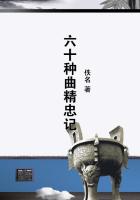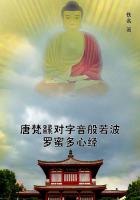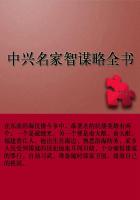They could not afford a fire to keep them warm, and, as the nights were cold and they lay without any shelter, they were most uncomfortable, although the days were warm.
They were now travelling along the Columbia River, using their horses for a part of their luggage, and towing the canoes with the remainder of the stuff. On the twenty-third of April they arrived at the mouth of Rock Creek, on the Columbia, a considerable stream which they missed as they passed this point on their way down, October 21. Here they met a company of Indians called the Wahhowpum, with whom they traded pewter buttons, strips of tin and twisted wire for roots, dogs, and fuel.
These people were waiting for the arrival of the salmon.
The journal says:--"After arranging the camp we assembled all the warriors, and having smoked with them, the violins were produced, and some of the men danced.
This civility was returned by the Indians in a style of dancing, such as we had not yet seen. The spectators formed a circle round the dancers, who, with their robes drawn tightly round the shoulders, and divided into parties of five or six men, perform by crossing in a line from one side of the circle to the other.
All the parties, performers as well as spectators, sing, and after proceeding in this way for some time, the spectators join, and the whole concludes by a promiscuous dance and song.
Having finished, the natives retired at our request, after promising to barter horses with us in the morning."
They bought three horses of these Indians and hired three more from a Chopunnish who was to accompany them.
The journal adds:--"The natives also had promised to take our canoes in exchange for horses; but when they found that we were resolved on travelling by land they refused giving us anything, in hopes that we would be forced to leave them.
Disgusted at this conduct, we determined rather to cut them to pieces than suffer these people to enjoy them, and actually began to split them, on which they gave us several strands of beads for each canoe.
We had now a sufficient number of horses to carry our baggage, and therefore proceeded wholly by land."
Next day the party camped near a tribe of Indians known as the Pishquitpah. These people had never seen white men before, and they flocked in great numbers around the strangers, but were very civil and hospitable, although their curiosity was rather embarrassing.
These people were famous hunters, and both men and women were excellent riders. They were now travelling on the south side of the river, in Oregon, and, after leaving the Pishquitpahs, they encountered the "Wollawollahs," as they called them.
These Indians are now known as the Walla Walla tribe, and their name is given to a river, a town, and a fort of the United States. In several of the Indian dialects walla means "running water," and when the word is repeated, it diminishes the size of the object; so that Walla Walla means "little running water."
Near here the explorers passed the mouth of a river which they called the Youmalolam; it is a curious example of the difficulty of rendering Indian names into English. The stream is now known as the Umatilla. Here they found some old acquaintances of whom the journal has this account:--"Soon after we were joined by seven Wollawollahs, among whom we recognized a chief by the name of Yellept, who had visited us on the nineteenth of October, when we gave him a medal with the promise of a larger one on our return.
He appeared very much pleased at seeing us again, and invited us to remain at his village three or four days, during which he would supply us with the only food they had, and furnish us with horses for our journey.
After the cold, inhospitable treatment we have lately received, this kind offer was peculiarly acceptable; and after a hasty meal we accompanied him to his village, six miles above, situated on the edge of the low country, about twelve miles below the mouth of Lewis' River.
"Immediately on our arrival Yellept, who proved to be a man of much influence, not only in his own but in the neighboring nations, collected the inhabitants, and having made a harangue, the purport of which was to induce the nations to treat us hospitably, he set them an example by bringing himself an armful of wood, and a platter containing three roasted mullets. They immediately assented to one part, at least, of the recommendation, by furnishing us with an abundance of the only sort of fuel they employ, the stems of shrubs growing in the plains.
We then purchased four dogs, on which we supped heartily, having been on short allowance for two days past. When we were disposed to sleep, the Indians retired immediately on our request, and indeed, uniformly conducted themselves with great propriety.
These people live on roots, which are very abundant in the plains, and catch a few salmon-trout; but at present they seem to subsist chiefly on a species of mullet, weighing from one to three pounds.
They informed us that opposite the village there was a route which led to the mouth of the Kooskooskee, on the south side of Lewis' River; that the road itself was good, and passed over a level country well supplied with water and grass; and that we should meet with plenty of deer and antelope.
We knew that a road in that direction would shorten the distance at least eighty miles; and as the report of our guide was confirmed by Yellept and other Indians, we did not hesitate to adopt this route: they added, however, that there were no houses, nor permanent Indian residences on the road and that it would therefore be prudent not to trust wholly to our guns, but to lay in a stock of provisions.
"Taking their advice, therefore, we next day purchased ten dogs.















